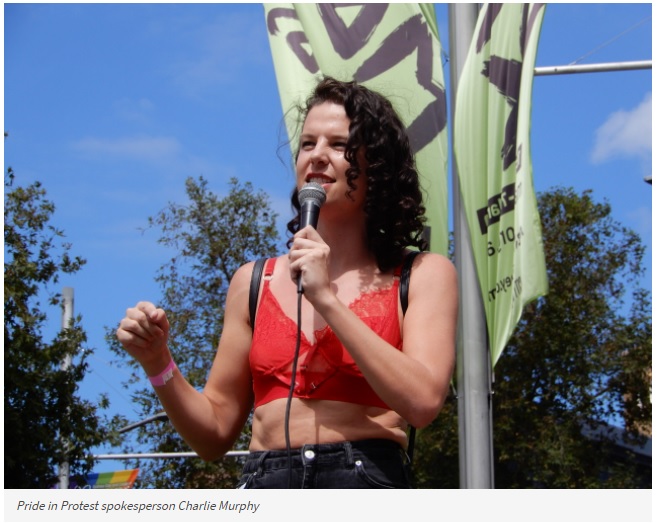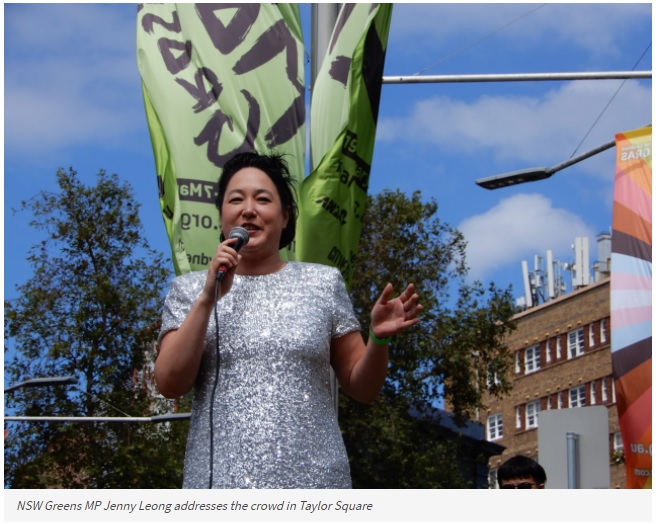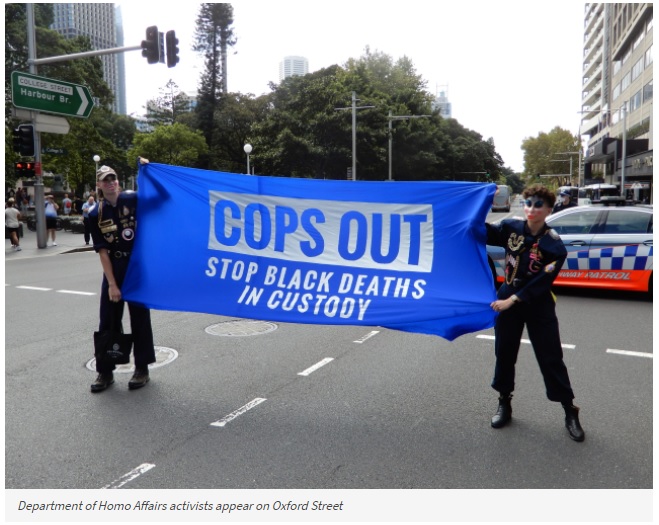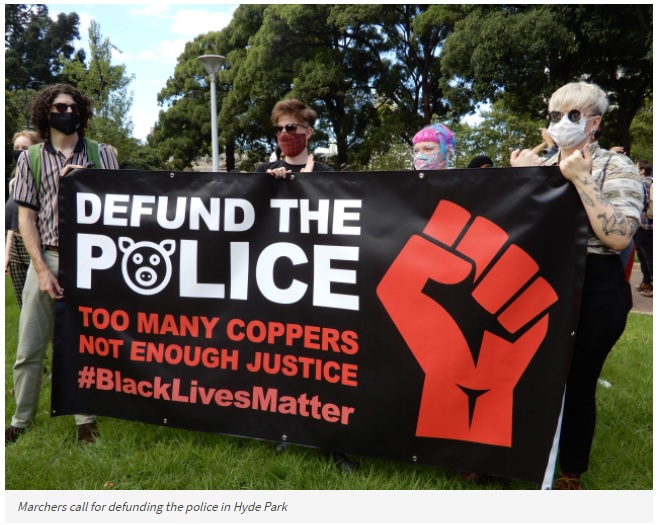The late in the day attempt by NSW police to shut down an alternate Mardi Gras march, protesting in support of a broad social justice agenda, sent a clear message as to why such a demonstration was needed 43 years on from the initial pride parade.
The NSW police force appears to have been ideologically opposed to Mardi Gras from its beginning. The initial 1978 march was violently suppressed by state law enforcement officers, with 53 participants arrested for getting out on the streets and calling for their basic rights to be upheld.
But things are supposed to have progressed. These days, NSW police has a float in the parade. In 2016, it officially apologised for its brutal response to the first demonstration.
And the institution even considered apologising for the shoddy approach it took in relation to the late 20th century Sydney gay and transgender hate crimewave.
This façade of change was torn down, though, as NSW police tried to have the courts prohibit the protest from going ahead last Saturday, under the pretext of very late in the day COVID-19 concerns. This reeked of an institution where homophobic and transphobic attitudes continue to prevail.
In the end, NSW health minister Brad Hazzard intervened to grant the protest an exemption to pandemic restrictions. And the whole scenario exemplifies why rally organisers, Pride in Protest, have long been calling for the abolition of the NSW police float from the official parade.

"Have we got justice yet?" |
"Since 2008, Pride in Protest has been saying that Mardi Gras is, has always been, and still should be, an opportunity for us to protest on the streets, and say, the fight for social justice is not yet over," Pride in Protest spokesperson Charlie Murphy told the demonstrators.
"As we have clearly proven over the past week, the police will not stop us from protesting, and NSW Health will not stop us from protesting," she continued. "We know that we will always be out here to say it's our right to end homophobia, transphobia and racism."
Murphy was addressing the crowd in Darlinghurst's Taylor Square. She was doing so just after a large number of demonstrators had spilled out onto Oxford Street to take over the adjacent intersection in what appeared to be an unexpected early reclaiming of the public space.
Along with the other organisers, Pride in Protest listed five key issues the rally was prioritising: killing the religious freedoms bills, ending mandatory detention for refugees, advancing the Black Lives Matter movement, and the decriminalisation of both sex work and personal drug possession.
Mark Gillespie, an original 78er from the first Mardi Gras, later took the microphone to assert that what fuelled the "dynamism" of the original protest was "the desire for justice". And he then asked the crowd if justice had been obtained, to which it responded, "No."
We won't be silenced |
"What was happening back in 1978 with police aggression and attacks on the LGBTIQ+ community is still happening today," said NSW Greens MP Jenny Leong. "Just yesterday, the NSW police tried to shut this protest down."
"Because of the community pressure and the determination of activists," she added, "we can see that there is now a beautiful large trans pride flag flying in the middle of Oxford Street stopping the traffic."

The NSW Greens LGBTIQ spokesperson condemned the religious freedoms bill that NSW One Nation MLC Mark Latham introduced into state parliament last year, as the legislation is a blatant attempt to erase the identity of transgender children from the education system.
Jenny also highlighted that the event stood in solidarity with the Black Lives Matter movement and against the overt racism towards First Nations people that pervades Australian systems. She underscored that there won't be any justice in this country, while prejudice like this continues.
Leong hearkened back to the police attempt to ban the protest in conclusion, saying, "Anyone in this community that says that we can't have an amazing take to the streets action in the middle of the day, and dancing in a stadium at night, doesn't quite realise how much sparkle Sydney has in it."
Cops out |
As the protest march made its way down Oxford Street in the direction of Sydney's Hyde Park, the demonstrators chanted, "Bottoms and tops: We all hate cops," as well as, "We're here, we're queer: We're fabulous, don't fuck with us."
At the intersection right at the entrance to Hyde Park appeared two masked activists from protest group the Department of Homo Affairs (DOHA) holding a banner that read, "Cops Out: Stop Black Deaths in Custody."

The reason the protest march was able to take over Oxford Street on 6 March was that the official Mardi Gras parade was to take place that evening at the Sydney Cricket Ground due to pandemic concerns. And it was later at this event, that DOHA activists suddenly resurfaced.
At around 8 pm, four Department of Homo Affairs activists dressed as cricket umpires stormed onto the SCG field to intercept the official NSW Police Force float, stating that they'd "detected foul play" in relation to Aboriginal deaths in custody and so they were calling for "cops out" of the parade.

The radical roots |
Turning back from the entrance of Hyde Park, one could see a multitude of rainbow flags trailing back up Oxford Street as they were waved by the huge numbers of people that had turned up to call for the upholding of LGBTIQ rights and an end to social injustices.
Pride in Protest spokesperson Evan Van Zijl addressed the crowd in the park, outlining that what the mobilisers had achieved was a demonstration that reached back to the Mardi Gras' radical roots to reawaken the essence of the 1978 march.
"The original Mardi Gras was a protest. Stonewall was a riot," Van Zijl made clear. "We need to remember that it was protest and it was mass action that got us where we are today, and it's going to be protests and mass action that gets us the rest of the way."
The content of this article is intended to provide a general guide to the subject matter. Specialist advice should be sought about your specific circumstances.

